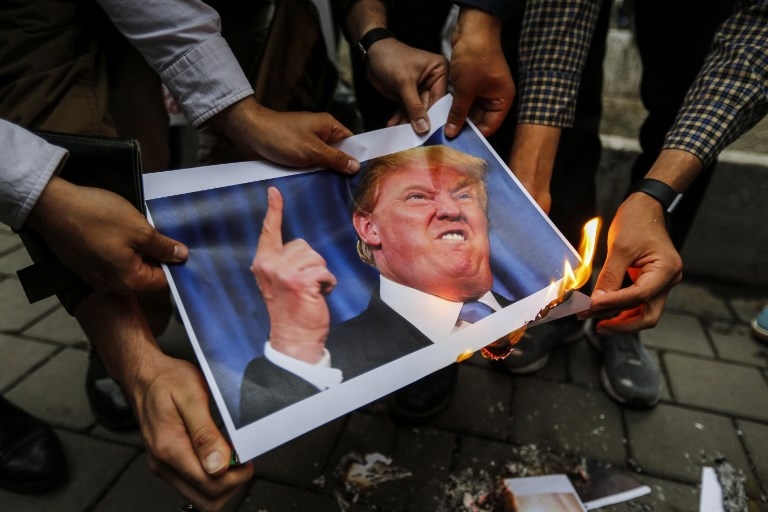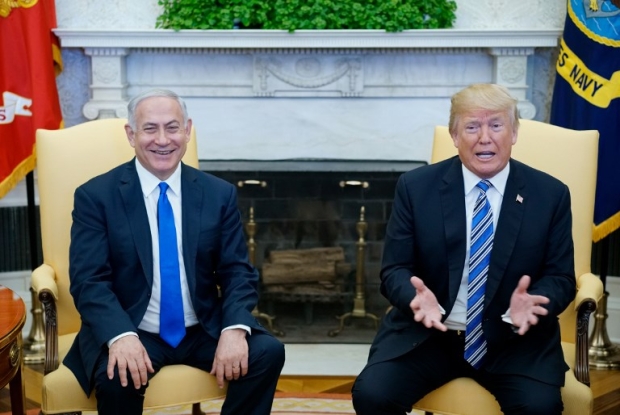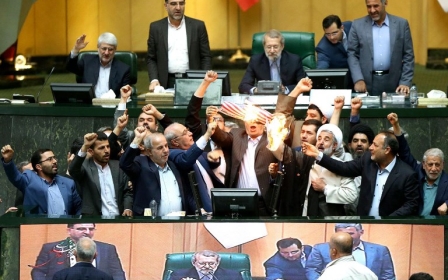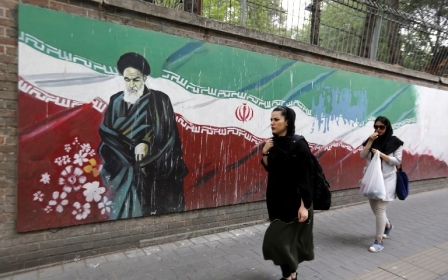We will all pay high price for Trump ditching Iran deal

Though the US withdrawal from the Iran nuclear deal has potentially disastrous repercussions for global politics and security, it was not unexpected.
We are living in an age of exits, of which Brexit was a major sign, and in which US President Donald Trump leads all the other colourful actors.
By putting into question US membership in various multilateral partnerships in which the country played a leading role - from NATO to NAFTA, from the Paris climate agreement to the Trans-Pacific Partnership - Trump has set off alarm bells for the global north and the Western-centric post-Second World War order.
The ‘Age of Exit’
Such exits, which Trump irrationally reduces to simply keeping the populist promises he made during the election campaign, will lead to serious geopolitical and economic consequences.
Even a cursory look at the main subjects of debate on the global intellectual and political agenda would suffice to make this case. After a bitter experience with global political depression in the new millennium - especially after the 2008 financial crisis - our world is gradually veering towards political nihilism. Titles such as "Is Democracy Dying?", "The End of the Liberal Order" and "The Collapse of Multilateralism" have made headlines in internationally renowned journals of politics and economy.
The Trump administration's decision to withdraw from the nuclear deal will have significant ramifications in the Middle East and around the world for years to come
Yet, despite general agreement on the existence of the "Age of Exit", what is lacking is a coherent approach to understand where this will take us.
The Trump administration's decision to withdraw from the nuclear deal will have significant ramifications in the Middle East and around the world for years to come. Trump has struggled to offer convincing reasons for the withdrawal, other than his wish to dismantle former president Barack Obama's legacy. That said, the Iran agreement started off on the wrong foot anyway; it was Obama, not Trump, who actually broke the nuclear deal first.
Previous agreement broken
In May 2010, Turkey and Brazil persuaded Iran to cooperate on nuclear energy with the international community via the Tehran agreement. But even after the Obama administration encouraged both countries to play this role, he refused to recognise the finalised deal, instead pushing for sanctions against Iran at the UN Security Council.
The US asked Turkey and Brazil not to vote "no" at the Security Council, but both countries saw voting "no" to sanctions against Iran as a logical extension of the diplomatic solutions that had enabled the Tehran agreement in the first place.
When Obama upset the 2010 nuclear deal, his decision took its toll first in Iraq, and then in the Arab Spring. The possibility of Iran becoming an actor with a positive agenda in the region, when the region itself was about to take a democratic leap, was thus eliminated when Iran was ostracised from the international system.
The Islamic State group (IS) and Syria's civil war turned into a global problem in the same period. It is not difficult to predict that the cost of the US withdrawal from the nuclear deal this time around will not be limited to an "Iran crisis", but could escalate into a regional one.
Israel's role
Obama did not propose a geopolitical vision for the region when he knocked down the 2010 deal, nor when he concluded the 2015 nuclear agreement with the P5+1. He simply reduced the entire issue to nuclear energy and potential armament.
To state it differently, Obama saw Iran solely through the lens of its nuclear programme. This reductionist equation obscured his view of the larger regional transformation that was already well under way when the nuclear deal was signed.
Obama's lack of geopolitical vision rendered him a prisoner to the deal. His consequential indecisiveness in Syria can't be detached from his obsession with leaving behind the nuclear deal as his major foreign policy legacy.
This legacy, however, was shortsightedly undone by Trump, who has opened the geopolitical Pandora's box in the process. The Trump administration, aided by Israel, has now invested in a new crisis in Europe, Russia and the Middle East.
Trump withdrew from the nuclear deal days after Israeli Prime Minister Benjamin Netanyahu raised claims about Iran's nuclear ambitions, similar to those he made in 2002, when he said there was "no question whatsoever" that Iraq's Saddam Hussein was working towards the development of nuclear weapons.
Beyond the nuclear deal
The US administration's anchoring of its entire Middle Eastern geopolitical perspective on Netanyahu’s worldview is simply unsustainable.
The cost of denying any international platform to Iran is not only a US concern, but a global one. It is not enough for the remaining partners in the nuclear deal to merely raise their objections with Trump and then maintain the deal themselves. Just as our perspective to address global climate change did not change after the US announced its withdrawal from the Paris agreement, relations with Iran should not be broken because of Trump's latest decision.
To achieve this, however, we urgently need a geopolitical outlook that looks beyond the nuclear deal. It is time for Europe, Russia, Turkey and other actors in the Middle East to start talking about a positive and visionary geopolitical perspective. That must start with the government in Iran.
- Taha Ozhan is a member of the Turkish parliament and a former chairman of its foreign affairs committee. He is an academic and writer and holds a PhD in politics and international relations. He frequently comments and writes for international media. His latest book is Turkey and the Crisis of Sykes-Picot Order (2015).
The views expressed in this article belong to the author and do not necessarily reflect the editorial policy of Middle East Eye.
Photo: Iranians burn an image of President Donald Trump at a protest over the US withdrawal from the nuclear deal in Tehran on 9 May 2018 (AFP)
Stay informed with MEE's newsletters
Sign up to get the latest alerts, insights and analysis, starting with Turkey Unpacked
Middle East Eye delivers independent and unrivalled coverage and analysis of the Middle East, North Africa and beyond. To learn more about republishing this content and the associated fees, please fill out this form. More about MEE can be found here.






